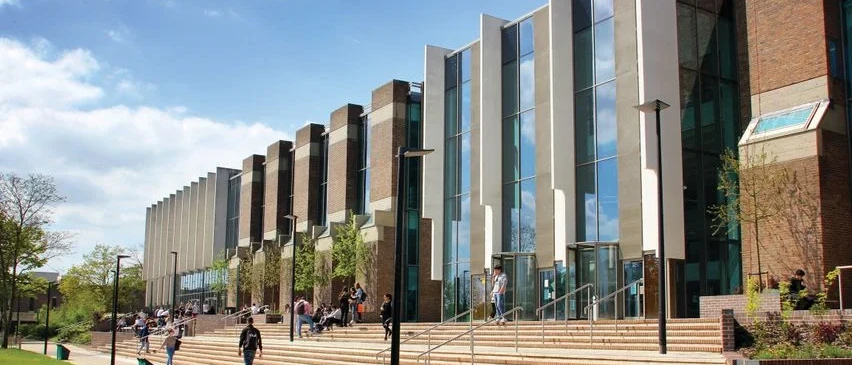

University of Kent
Media
Study detals
: Bachelor's degree : BA (Hons) Media : Full time : 36 MonthRequirements
GCE/GCSE
The minimum requirements are:
- five passes at GCSE grade C (or grade 4) or above, including English Language or Use of English (IGCSE English as a Second Language, grade B or grade 6), and at least two subjects at A level OR
- three passes at GCE A level and a pass at grade C (or grade 4) or above in GCSE English Language or Use of English.
Offers are normally based on achieving three A levels or equivalent at Level 3, although some University subject areas may specify differently. You must have a minimum of two A level equivalents at Level 3 in two subjects (ie two A levels or one vocational double award).
We base offers on a combination of GCSE/AS/VCE A level/A level/other qualifications or predicted grades, your personal statement and reference.
See our GCSE conversion table to understand how A* to C grades are matched with the numerical system.
Other qualifications
We are happy to consider other qualifications on a case-by-case basis, including the following qualifications, providing they demonstrate a satisfactory standard and include a pass in English at the equivalent of GCSE:
- Scottish (SQA) higher/advanced higher qualifications
- Irish Leaving Certificate
- European Baccalaureate Diploma
- Certificate in Education
- university degree
- Advanced International Certificate of Education
- Advanced Placement (AP) – a minimum of two full APs is required
- Overseas certificates (including some other European Union (EU) countries)
- Higher School Certificate of Matriculation of approved overseas and EU authorities
- American High School Diplomas if accompanied by two full AP passes
- School Certificates and Higher School Certificates awarded by a body approved by the University
- matriculation from an approved university, with a pass in English Language at GCSE/O level or an equivalent level in an approved English language test
- Kent’s foundation programmes, provided you meet the subject requirements for the degree course you intend to study
Subjects accepted for the General Entry Requirement
- Kent generally accepts any A level syllabus approved by the AQA, OCR, WJEC and Edexcel and CIE awarding bodies, though we regard some subjects as more suitable than others.
- We do not accept the more vocational subjects if offered as one of only two A level passes.
- We count subjects with a significant overlap as one subject.
- We may accept two mathematical subjects at the same level provided that the course syllabuses were substantially different (for example, a combination of Pure and Applied Mathematics or of Mathematics and Further Mathematics). We will accept papers in Mathematics and Further Mathematics set on the SMP syllabus. A level 'Use of Mathematics' is not accepted by some degree subjects as meeting requirements for a specific grade in A level Mathematics.
- Some academic schools may take into consideration passes in Level 2 functional skills communication and numeracy where you cannot meet the matriculation requirements for English and Maths at GCSE level. However, you are advised to try to retake GCSE English and Mathematics as these will provide a better preparation for studying at university.
English Language Requirements
| Level | CEFR | IELTS Equivalent |
|---|---|---|
| Good |
B2 |
6.0 with a minimum of 5.5 in each component |
| Very Good | B2 | 6.5 with a minimum of 5.5 in each component |
| Excellent | C1 | 7.0 with a minimum of 7.0 in each component |
Speciality
Pathways Available: International Foundation Year | International Year Zero
Additional information
Degree Overview
In your first year, you cover media and meaning, media identity and diversity, media power and/or making media (i.e. a practical introduction to media content creation). This gives you a solid grounding in the subject and introduces you to some of the most pressing issues in contemporary media culture and the creative industries.
The second and final years of your degree build on these foundations. You take a module on media ethics and choose from a huge range of modules, covering everything from podcasting, gender and digital culture, social media, digital storytelling, to photography and arts criticism, screenwriting and curating. You can also study modules from other subjects, such as film, drama and theatre, art history, literature, history, philosophy, politics and sociology.
Combine contemporary media and culture with content production: How are digital technologies forming identities, shaping politics and affecting audiences? Customise your programme with elective modules ranging from social media and celebrity culture to podcasting and promotional media.
Learn from leading experts: Be taught by practitioners and researchers who contribute to contemporary debate through their publications and frequently appear on national news and television.
Be part of a professional network: Make connections with external industry professionals, from organisations like the BBC and The Guardian, through regular careers events, symposia, seminars, conferences and exhibitions.
Join our community: A creative hub for film, drama, media studies and art history, where you can engage in activities and societies, such as the Student Media Centre, where volunteers produce print, radio and online content.